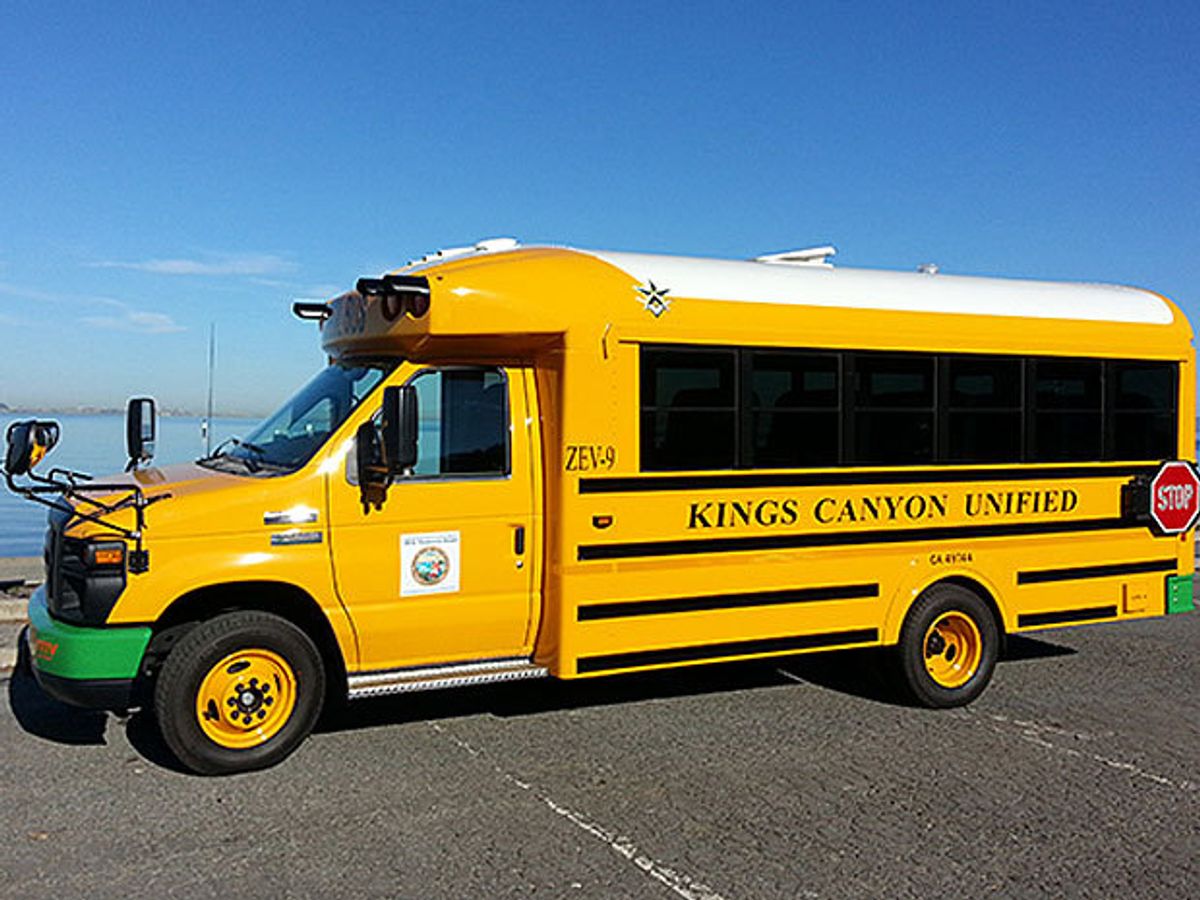Anyone who has taken a school bus is familiar with the crunching sound of an idling diesel engine—and the nasty exhaust they give off. Researchers at the University of Delaware argue that cleaner electric school buses can make financial sense for school districts if they provide services to grid operators.
In an economic analysis published in Applied Energy and announced yesterday, researchers found that purchasing an electric bus, which costs more than twice a diesel bus, could save a school $38 million over the typical 14-year life of a school bus. “It would be cheaper to operate these buses,” said Jeremy Firestone, director of the Center for Carbon-free Power Integration at the University of Delaware. “And kids don’t need to be exposed to diesel fumes.”
The University of Delaware has an ongoing experiment that's at the leading edge of vehicle-to-grid technology. It has 15 electric Mini Cooper sedans that earn money by providing quick bursts of power—as short as a few seconds or as long as several minutes--to balance the local electric grid. The cars’ batteries effectively act as a mini power plant, providing frequency regulation services that are normally provided by fossil fuel plants or very large stationary batteries.
Electric school buses could provide the same services and, in some ways, are better suited for the task than consumer-owned plug-in cars. Because electric buses are only used for short periods of time, their batteries are typically available for many hours of the day, which makes them more valuable to the local grid operator that would purchase frequency regulation services. Also, fleet owners are more likely to invest in the inverter and control hardware to create two-way connection to the grid.
The shorter range of an electric bus compared to a diesel bus is not going to be a problem for most urban and suburban school districts, said Firestone. Regenerative braking from frequent stops can aid battery range as well.
The analysis included the medical and climate benefits of using an electric bus. Even when they were not included, a vehicle-to-grid-capable electric bus could save a school district more than $5,700 per seat over its lifespan, according to lead author Lance Noel.
Diesel exhaust, which contains benzene and soot, is classified as a probable human carcinogen by many government agencies, including the International Agency for Research on Cancer and the US Environmental Protection Agency. And children are particularly susceptible to the adverse respiratory effects from fine particular matter, according to the nonprofit Environment and Human Health. It's estimated that 0.3 percent of in-cabin air comes from the bus's exhaust, the University of Delaware paper notes.
Practically speaking, many school districts will be unwilling or unable to pay more for electric buses. In its test, the University of Delaware ran its analysis with a bus that costs $260,000, compared to $110,000 for an equivalent diesel.
Firestone speculated that parents could be motivated by the health benefits of an electric bus to press school districts to pay the higher upfront costs. Also, a third-party fleet operator could own the buses and earn money from the frequency regulation grid services. Third-party ownership of rooftop solar panels has helped fuel rapid growth of distributed solar in the U.S. States and the federal government could also provide financing for first-of-a-kind vehicle-to-grid projects, Firestone said.
Another variable in vehicle-to-grid technology is the local grid operator. The University of Delaware is earning money with its fleet of electric Mini Coopers with PJM, which is a large and progressive grid operator. PJM makes relatively large frequency regulation payments and pays more for fast-acting energy resources, such as batteries, which has helped enable a number of innovative applications. For example, the Philadelphia subway authority has been able to finance an energy storage system that captures energy from braking trains and provides balancing services to the local grid.
Firestone is hopeful that school districts will consider electric buses when they need to upgrade. "Once you have the first couple installed and people understand both the economic and health benefits, it's an idea that could catch on rather quickly," he said.



